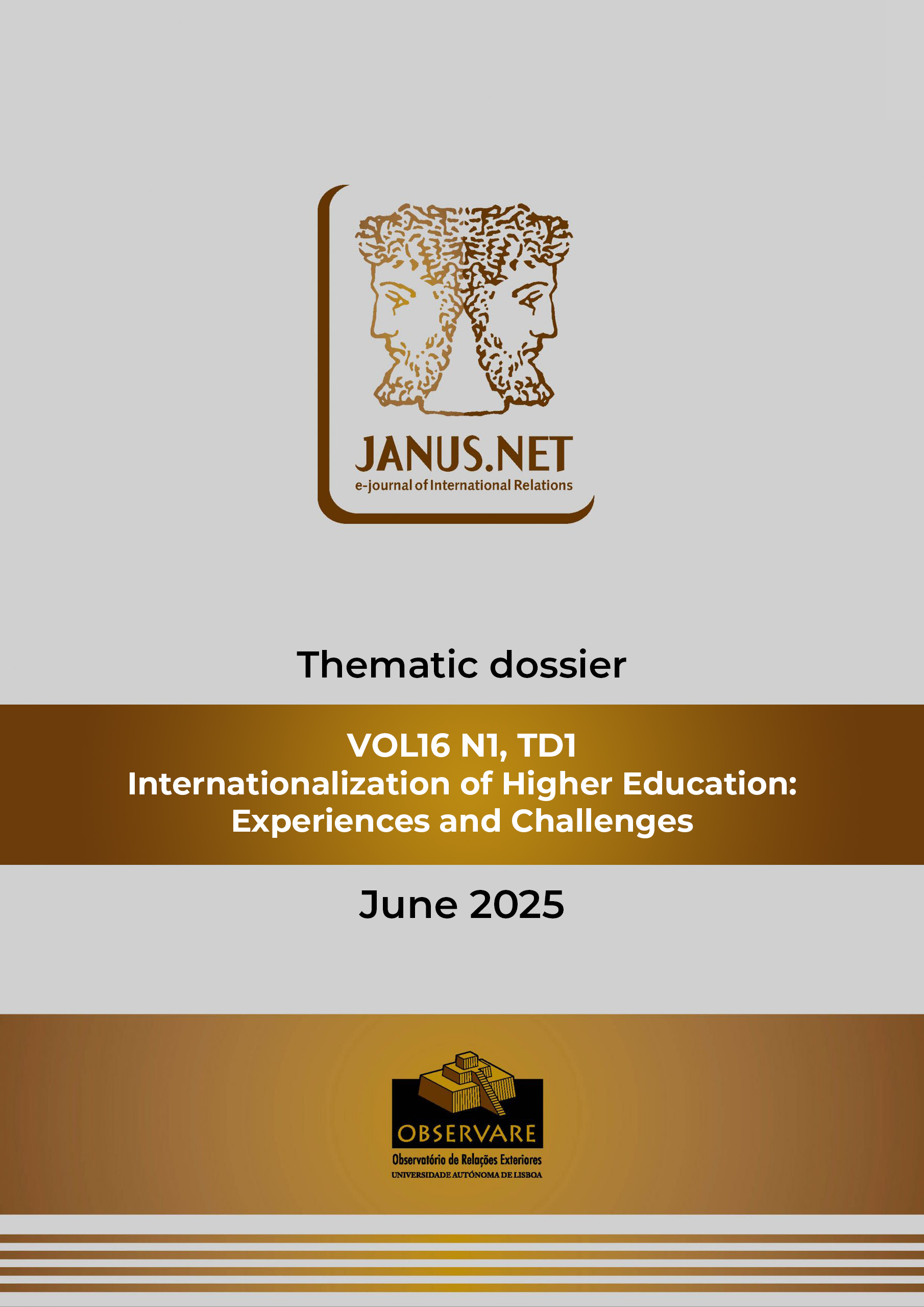EDITORIAL
DOI:
https://doi.org/10.26619/1647-7251.DT0325EDResumo
In recent decades, the internationalization of higher education has emerged as a central theme in global academic discourse. As universities and academic institutions around the world increasingly operate beyond national borders, the need to examine the implications, practices, and outcomes of internationalization has become both urgent and complex. Internationalization, in the context of higher education, refers not only to the mobility of students, faculty, and academic programs, but also to the integration of international dimensions into curricula, research agendas, institutional strategies, and campus cultures. It encompasses policies and practices designed to enhance global engagement, foster intercultural understanding, and prepare graduates to operate in increasingly interconnected societies. However, internationalization is not a neutral or universally beneficial process. It reflects broader dynamics of globalization, power relations, economic inequalities, and cultural negotiations that shape how it is experienced and implemented across different contexts. Effective leadership in this context must not only enable global engagement but also prioritize equity, diversity, and ethical responsiveness to global challenges.


